REBECCA
“Rebecca” is a classic film noir directed by Alfred Hitchcock and released in 1940. The movie is based on the novel of the same name by Daphne du Maurier and tells the story of a young woman who marries a wealthy widower and moves into his grand estate. However, she finds herself haunted by the memory of his first wife, Rebecca, who died under mysterious circumstances. The new wife struggles to navigate the complex relationships and secrets of the house, including the overbearing housekeeper, Mrs. Danvers. As the new wife tries to uncover the truth about Rebecca’s death, she becomes increasingly isolated and paranoid, wondering if her husband still loves his dead wife more than her.
The film was a critical and commercial success, receiving eleven Academy Award nominations and winning two, including Best Picture. It remains a beloved classic of the film noir genre and is known for its Gothic atmosphere, stunning cinematography, and unforgettable performances by its cast, including Laurence Olivier, Joan Fontaine, and Judith Anderson.
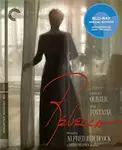
Director: Alfred Hitchcock
Year: 1940
Stars: Laurence Olivier, Joan Fontaine, Judith Anderson
Awards: Nominated for 11 Oscars. Won 2.
PLOT
The movie follows the story of a young, unnamed woman (played by Joan Fontaine) who meets the wealthy Maxim de Winter (Laurence Olivier) while on holiday in Monte Carlo. Despite their different social backgrounds, they fall in love and decide to get married.
However, after they return to Maxim’s grand estate, Manderley, the new wife begins to feel overwhelmed by the shadow of Maxim’s first wife, Rebecca, who died under mysterious circumstances. She becomes increasingly isolated and paranoid, convinced that everyone in the house is comparing her unfavorably to Rebecca. The housekeeper, Mrs. Danvers (Judith Anderson), in particular, seems to take pleasure in tormenting the new wife by constantly reminding her of Rebecca’s beauty and accomplishments.

The new wife tries to make the best of her situation, but she is plagued by a sense of unease and the feeling that something is not quite right. She discovers that Maxim and Rebecca’s relationship was not as perfect as she initially thought and that there are secrets lurking beneath the surface of Manderley. The new wife starts to investigate Rebecca’s death, and in doing so, she uncovers a web of deceit and betrayal that threatens to destroy her own marriage.
Throughout the film, the tension builds as the new wife becomes increasingly obsessed with the memory of Rebecca and begins to question her own sanity. She feels like she is living in Rebecca’s shadow and that Maxim is still in love with his dead wife. However, the truth is far more complicated than she realizes, and as the mystery of Rebecca’s death is slowly unraveled, the new wife is forced to confront the reality of her situation.
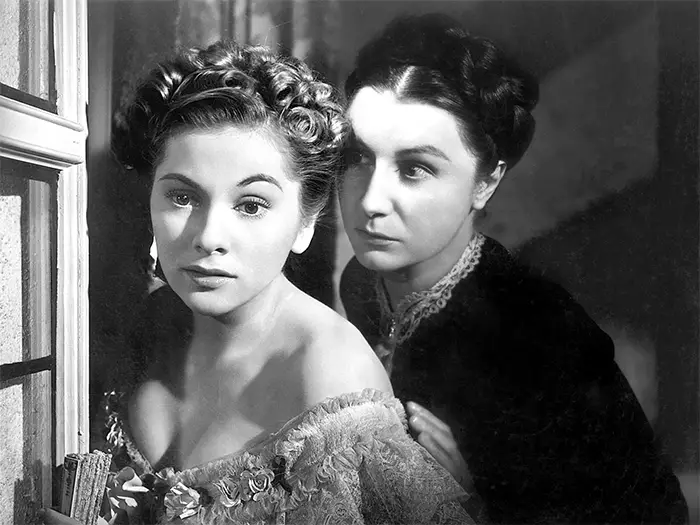
One of the most memorable scenes in the film is when Mrs. Danvers takes the new wife to Rebecca’s old bedroom and shows her all of Rebecca’s possessions. The scene is eerie and unsettling, with Mrs. Danvers almost seeming to channel Rebecca’s spirit. The use of lighting and camera angles creates a sense of claustrophobia and reinforces the new wife’s sense of being trapped in the house.
In the climax of the film, the truth about Rebecca’s death is finally revealed. It turns out that Rebecca was not the perfect wife that everyone believed her to be, and that she was involved in a number of scandals and illicit affairs. Maxim admits to killing her in a fit of rage after she revealed that she was pregnant with another man’s child. The new wife stands by Maxim’s side, and together they burn down Manderley and escape to a new life.
THEMES
One of the central themes of the film is the idea of love and how it can be both liberating and destructive. The new wife’s love for Maxim is what draws her into the world of Manderley, but it also blinds her to the reality of the situation. She is so desperate to be loved and accepted that she overlooks the fact that Maxim is still haunted by the memory of his first wife. This love triangle creates tension and drama throughout the film and reinforces the idea that love can be a double-edged sword.
Another important theme in “Rebecca” is obsession. The new wife becomes increasingly obsessed with the memory of Rebecca, convinced that she will never live up to the standards set by her predecessor. This obsession takes a toll on her mental health and leads to a sense of paranoia and isolation. Mrs. Danvers, too, is obsessed with Rebecca, and her obsession manifests in a desire to destroy the new wife and preserve the memory of her former mistress.
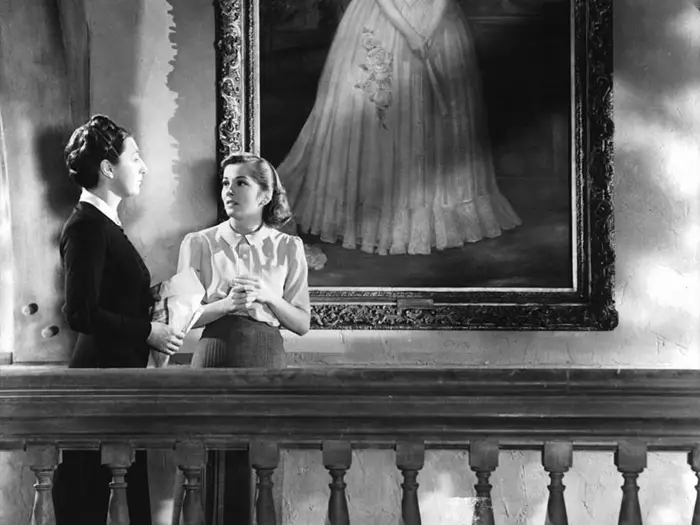
Betrayal is also a key theme in the film. Maxim betrays the new wife by keeping the truth about Rebecca’s death a secret, and the new wife feels betrayed by the people around her who seem to be conspiring against her. This theme is closely tied to the idea of secrets, which are a driving force in the film. The secrets that surround Rebecca’s death create tension and drama, and the truth about what happened is not revealed until the very end of the film.
“Rebecca” is a powerful exploration of some of the central themes of film noir. The film’s use of light and shadow, its Gothic atmosphere, and its exploration of the darker side of human nature all contribute to its status as a classic of the genre.
11 OSCAR NOMINATIONS
“Rebecca” was nominated for a total of 11 Academy Awards in 1941, including Best Picture, Best Director, Best Actor, Best Actress, Best Supporting Actress, and Best Cinematography. It won two awards, for Best Picture and Best Cinematography, which is a testament to the film’s lasting impact on cinema history.
Best Picture – “Rebecca” won the Best Picture award, which is the most prestigious award at the Oscars. The film was praised for its direction, cinematography, and performances, and for its haunting and suspenseful story.
Best Director – Alfred Hitchcock was nominated for Best Director for his work on “Rebecca,” but he lost to John Ford for “The Grapes of Wrath.” Hitchcock’s innovative camera work and masterful storytelling set a new standard for filmmaking and helped establish him as a leading figure in the industry.
Best Actor – Laurence Olivier was nominated for Best Actor for his performance as Maxim de Winter, but he lost to James Stewart for “The Philadelphia Story.” Olivier’s portrayal of the brooding and troubled de Winter was praised for its emotional depth and complexity.
Best Actress – Joan Fontaine was nominated for Best Actress for her portrayal of the unnamed protagonist, but she lost to Ginger Rogers for “Kitty Foyle.” Fontaine’s nuanced and vulnerable performance as the young and innocent second wife of Maxim de Winter was praised for its sensitivity and authenticity.
Best Supporting Actress – Judith Anderson was nominated for Best Supporting Actress for her chilling portrayal of Mrs. Danvers, but she lost to Jane Darwell for “The Grapes of Wrath.” Anderson’s performance as the sinister and obsessive housekeeper was one of the highlights of the film, and her portrayal of Mrs. Danvers has become iconic in cinema history.
Best Screenplay – Robert E. Sherwood and Joan Harrison were nominated for Best Screenplay, but they lost to Herman J. Mankiewicz and Orson Welles for “Citizen Kane.” The screenplay of “Rebecca” was praised for its faithful adaptation of the novel and for its haunting and suspenseful story.
Best Art Direction – Lyle R. Wheeler won the Best Art Direction award for his work on “Rebecca,” which included the stunning sets and interiors of Manderley, the grand estate of Maxim de Winter. The sets of “Rebecca” were praised for their Gothic and atmospheric qualities, and they helped establish the film’s haunting and suspenseful tone.
Best Cinematography – George Barnes won the Best Cinematography award for his work on “Rebecca,” which included the use of light and shadow to create a sense of mystery and suspense. Barnes’ innovative camera work and masterful use of black and white photography helped establish him as one of the leading cinematographers of his time.
Best Film Editing – Hal C. Kern won the Best Film Editing award for his work on “Rebecca,” which included the seamless blending of different shots and scenes to create a sense of continuity and suspense. Kern’s innovative editing techniques helped establish him as one of the leading film editors of his time.
Best Original Score – Franz Waxman was nominated for Best Original Score for his haunting and atmospheric music for “Rebecca,” but he lost to Leigh Harline, Paul J. Smith, and Ned Washington for “Pinocchio.” Waxman’s music helped establish the film’s haunting and suspenseful tone, and it has become an iconic part of the film’s legacy.
Best Sound – John Aalberg was nominated for Best Sound for his work on “Rebecca,” but he lost to Douglas Shearer for “Strike Up the Band.” Aalberg’s innovative use of sound effects and music helped establish the
RECEPTION
“Rebecca” was released in 1940 to critical acclaim and box office success. The film received positive reviews from critics, who praised its direction, cinematography, performances, and its haunting and suspenseful story.
The New York Times called the film “one of the best” of the year, praising Hitchcock’s direction, the performances of Olivier and Fontaine, and the “outstanding” cinematography of George Barnes. The review also noted the film’s “delightful” humor and its “terrifying” climax.
The Hollywood Reporter also praised the film, calling it “an outstanding production” with “brilliant direction” and “superb performances.” The review noted the film’s “gripping” story and its “startling” climax, as well as its “excellent” cinematography and art direction.
The film was a commercial success, grossing over $6 million at the box office and becoming one of the highest-grossing films of the year. It was also nominated for 11 Academy Awards, winning two, for Best Picture and Best Cinematography.
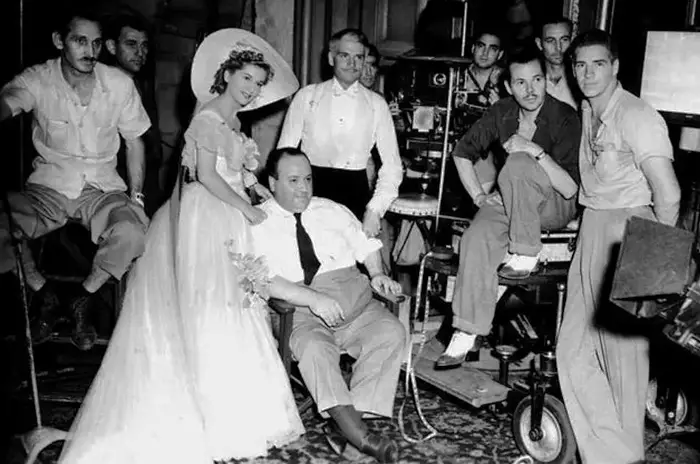
However, the film was not without its detractors. Some critics criticized the film’s departure from the original novel, particularly the changes to the character of Mrs. Danvers, who was portrayed as more sympathetic in the film than in the book.
Despite these criticisms, “Rebecca” remains a classic of the film noir genre, and its influence can be seen in countless films that have followed in its wake. The film’s haunting and suspenseful story, its innovative direction and cinematography, and its iconic performances have cemented its place in cinema history.
POPULAR CULTURE
“Rebecca” has had a significant impact on popular culture since its release in 1940. It has been referenced, parodied, and adapted in a wide range of media, including films, TV shows, books, and even music.
One of the most famous adaptations of “Rebecca” is the 2020 Netflix series of the same name, starring Lily James and Armie Hammer. The series is a modern retelling of the story, but it retains many of the key elements of the original, including the themes of love, obsession, and secrets. The series has been praised for its stunning cinematography and its faithful adaptation of the novel, while also updating the story for a contemporary audience.
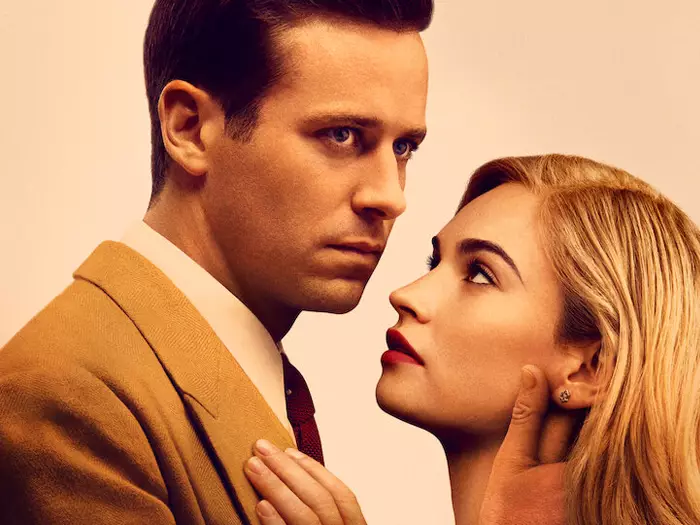
In addition to the Netflix series, “Rebecca” has also been referenced in a number of films and TV shows. For example, the 1954 film “Gone with the Wind” features a scene in which Scarlett O’Hara compares herself to Rebecca, while the 1992 film “Bram Stoker’s Dracula” includes a shot that pays homage to the famous scene in which Mrs. Danvers shows the new wife Rebecca’s room.
“Rebecca” has also been parodied in a number of comedies, including the 1992 film “High Strung,” which features a character named Mrs. Dandridge who is a parody of Mrs. Danvers. The film “Not Another Teen Movie” also parodies “Rebecca” in a scene where the new wife is shown Rebecca’s bedroom, only to discover that it is filled with posters of boy bands and other pop culture icons.
In music, “Rebecca” has been referenced in a number of songs, including “Rebecca, You’re Gonna Be Okay” by The Rocket Summer and “Rebecca” by Blackalicious. The latter song includes the lyrics, “You can’t escape Rebecca, you can only hope to please her.”
“Rebecca” has also had a significant impact on literature, both as a novel and as a film. Daphne du Maurier’s novel has become a classic of Gothic literature, and its influence can be seen in works by other writers, such as Shirley Jackson and Susan Hill. The novel has been adapted into plays and musicals, including a 2006 musical adaptation by Michael Kunze and Sylvester Levay.
The film adaptation of “Rebecca” has also inspired other films in the genre, such as “Gaslight” (1944) and “Vertigo” (1958), which also deal with themes of love, obsession, and secrets. The use of light and shadow in the film, as well as its Gothic atmosphere, have also influenced other filmmakers, such as Tim Burton and Guillermo del Toro.
The character of Mrs. Danvers, in particular, has become a cultural icon in her own right. She has been referenced and parodied in a wide range of media, from TV shows like “The Simpsons” and “Family Guy,” to films like “The Rocky Horror Picture Show” and “The Addams Family.” The character has also been used as a shorthand for a certain type of strict and obsessive personality, and is often referenced in discussions of pop culture villains.
Explore more Film Noir
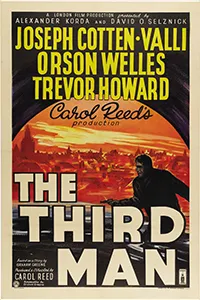
Classic film noir set in post-WWII Vienna, where a writer investigates the mysterious death of his friend.
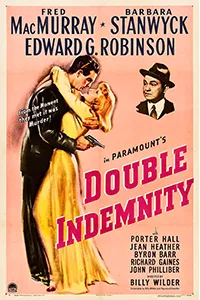
A gripping film noir about a seductive woman who convinces an insurance salesman to plot a murder.
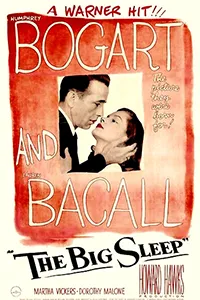
This classic film noir follows private detective Philip Marlowe as he investigates a complex case involving a wealthy family.